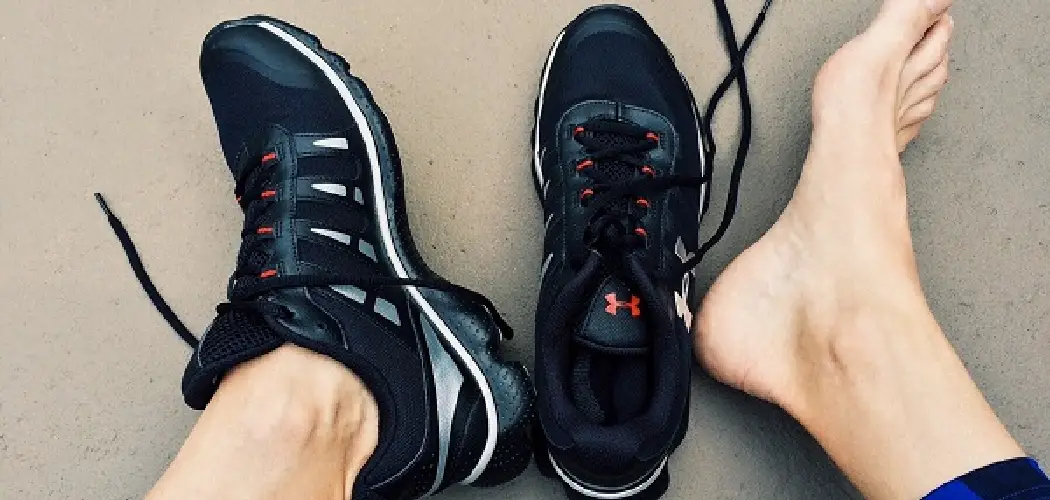Dealing with sweaty feet can be a real pain, especially when trying to focus on work. Boots tend to make feet sweat more than any other type of shoe, so finding a way to keep your feet dry can be tricky.
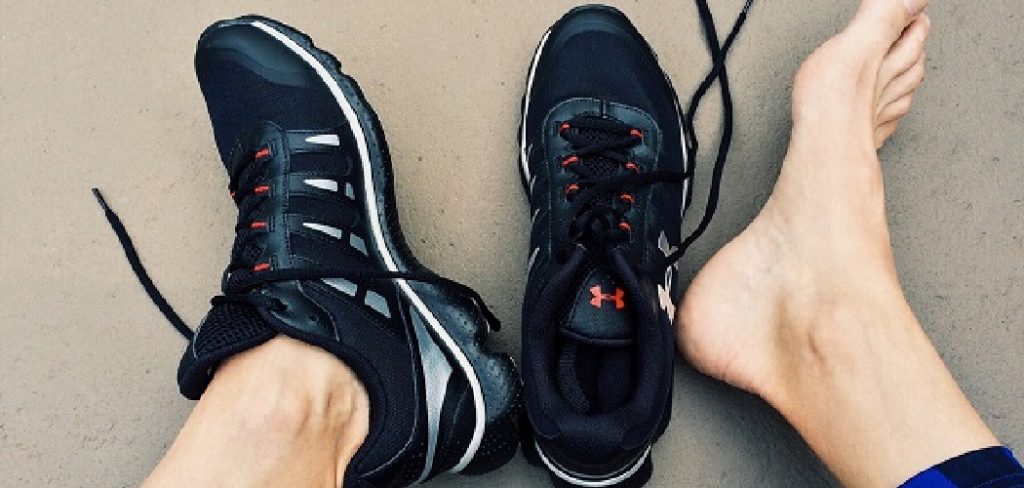
Thankfully, there are a few things you can do to help. This article will discuss some of the best ways how to keep feet from sweating in work boots. We’ll also cover some tips for preventing blisters and odor. Read more.
Summary: Keeping your feet dry and comfortable when wearing work boots is important for comfort and hygiene. To do this, you need to take preventive steps such as investing in breathable materials, selecting the right size, controlling sweat through insoles or powder, and treating leather boots with protective oils. Additionally, preventive measures such as rotating between different pairs of shoes can make all the difference.
What Causes Sweaty Feet in Boots?
There are a few factors that can contribute to sweaty feet in boots, including:
Your Body’s Natural Tendencies:
Some people sweat more than others. If your feet tend to sweat a lot, you’re more likely to have sweaty feet in boots. It’s just a fact of life.
The Material of the Boot:
Boots made from synthetic materials (like nylon or polyester) trap heat and moisture, leading to sweaty feet. Leather boots are usually better, as they allow your feet to breathe.
The Fit of the Boot:
If your boots are too tight, they’ll constrict your blood flow and make your feet sweat. Make sure your boots fit snugly but comfortably to avoid this issue. It’s also important to break in new boots gradually to avoid blisters and discomfort.
The Weather:
Hot, humid weather can make anyone’s feet sweat. If you live in a warm climate, you’re more likely to have sweaty feet in boots during the summer months. It’s important to take this into account when choosing boots for work.
A Complete Guide on How to Keep Feet From Sweating in Work Boots
1. Choose the Right Material.
The first step in how to keep feet from sweating in work boots is to choose the right material. When it comes to preventing sweaty feet, the material of your boots is important. Avoid synthetic materials like nylon or polyester, as they tend to trap heat and moisture. Leather boots are usually better, as they allow your feet to breathe. If you must wear synthetic materials, look for breathable and lightweight ones.
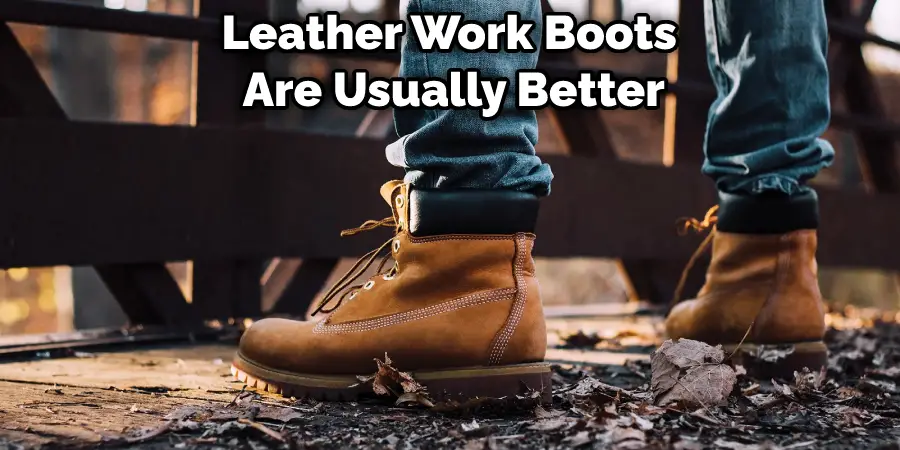
2. Consider the Fit of Your Boots.
If your boots are too tight, they’ll constrict your blood flow and make your feet sweat. Make sure your boots fit snugly but comfortably to avoid this issue. It’s also important to break in new boots gradually to avoid blisters and discomfort. Fit is especially important in hot, humid weather.
3. Wear Socks Made From Moisture-wicking Material.
Socks made from moisture-wicking material (like polyester or wool) can help absorb sweat and keep your feet dry. Avoid cotton socks, as they tend to hold onto moisture. However, if you’re prone to sweaty feet, consider wearing two pairs of socks to absorb even more sweat.
4. Dust Your Feet With Talcum Powder.
Talcum powder can help absorb sweat and keep your feet dry. Apply a light layer of powder to your feet before putting on your boots. Be sure to shake off any excess powder, as too much can make your feet slip inside your boots. If you have sensitive skin, look for a cornstarch-based talcum powder.
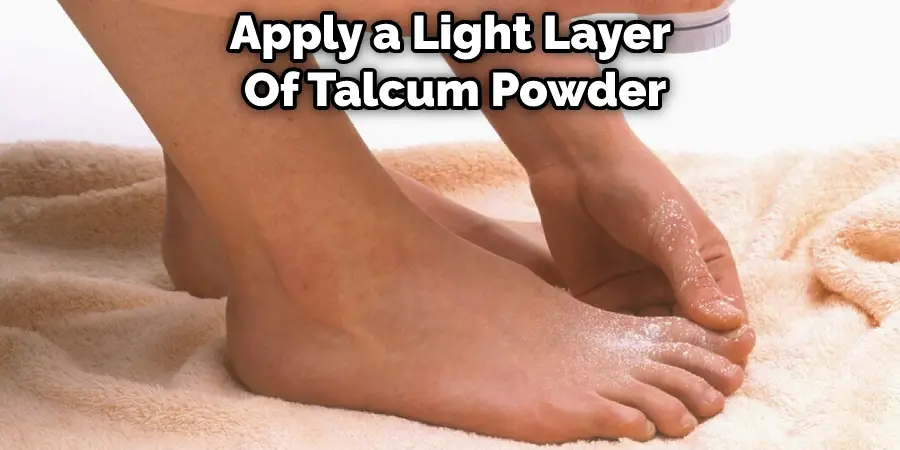
5. Change Your Socks Throughout the Day.
If your feet are sweating a lot, consider changing your socks midway through the day. This will help absorb any sweat and keep your feet from getting too wet. If you don’t have time to change your socks, bring a spare pair to work and keep them in your desk drawer. If you’re wearing two pairs of socks, you can usually change just one.
6. Sprinkle Baking Soda in Your Boots.
Baking soda can help absorb moisture and keep your feet dry. Sprinkle a small amount in your boots before putting them on. Be sure to shake out any excess baking soda, as too much can make your feet slip inside your boots. If you have sensitive skin, look for an aluminum-free baking soda.
7. Place a Dryer Sheet in Each Boot.
Dryer sheets contain chemicals that can help absorb moisture and keep your feet dry. Place a sheet in each boot before putting them on. Be sure to change the sheets regularly, as they can lose effectiveness over time. If you have sensitive skin, look for dryer sheets that are unscented or hypoallergenic.
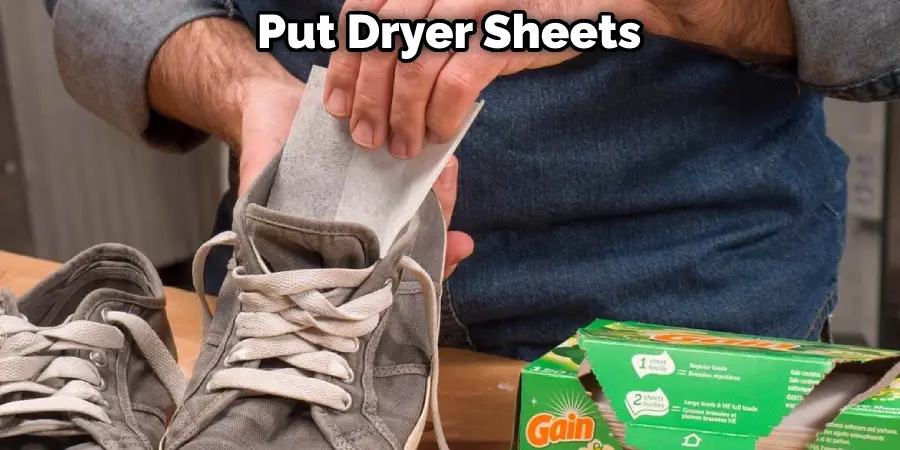
8. Freeze Your Socks Before Wearing Them.
Putting your socks in the freezer for a few hours before wearing them can help keep your feet cool and dry. This is especially helpful in hot, humid weather. Be sure to put on the socks while frozen to prevent frostbite. If you have sensitive skin, wrap the socks in a thin cloth before freezing them.
9. Stuff Your Boots With Newspaper.
Stuffing your boots with newspaper can help absorb moisture and dry your feet. However, be sure to change the newspaper regularly, as it can lose its absorbency over time. If you have sensitive skin, look for unscented or hypoallergenic newspapers. If you’re concerned about the environment, you can use recycled newspapers.
10. Keep Your Feet Dry Before Putting on Your Boots.
If your feet are already sweating when you put on your boots, they’re more likely to sweat. To prevent this, dry your feet off before putting on your boots. You can use a towel, a hairdryer, or even baby powder. If you have sensitive skin, look for a hypoallergenic powder.
You Can Check It Out to Dry Hiking Boots
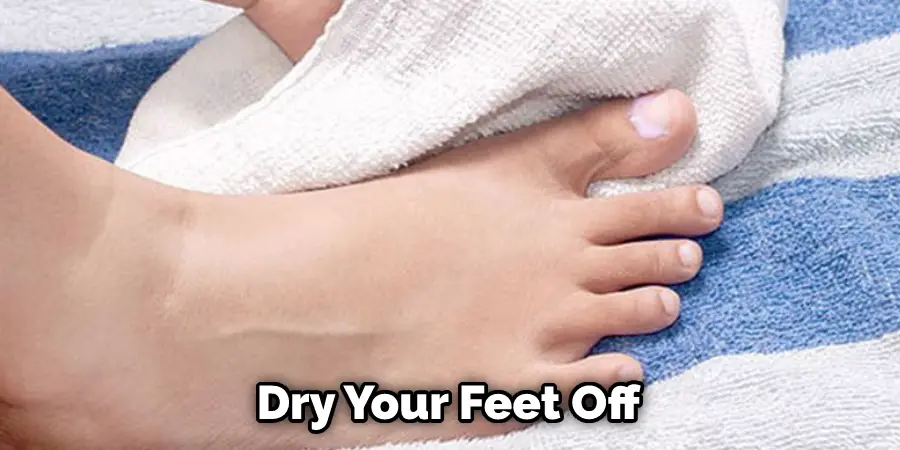
11. Avoid Wearing Tight Clothing.
Tight clothing can constrict your blood flow and make your feet sweat. To avoid this, wear loose-fitting clothing that allows your skin to breathe. Natural fibers like cotton and linen are usually best. If you must wear tight clothing, try to choose items made from moisture-wicking material. If you have sensitive skin, look for hypoallergenic clothing.
12. Use Foot Powder or Antiperspirant.
Foot powder or antiperspirant can help absorb sweat and keep your feet dry. Apply a small amount to your feet before putting on your boots. Be sure to shake off any excess powder, as too much can make your feet slip inside your boots. If you have sensitive skin, look for a powder or antiperspirant that is hypoallergenic. If you’re concerned about the environment, you can use a natural foot powder.
13. Wear Breathable Boots.
Boots that are made from breathable materials will help keep your feet from sweating. Leather and mesh are good choices. If you have sensitive skin, look for boots that are made from hypoallergenic materials. It’s also a good idea to choose boots that have vents or holes to allow air to circulate.
14. Wear the Right Size Boots.
Boots that are too tight will constrict your blood flow and make your feet sweat. To avoid this, be sure to choose boots that fit well. For example, look for boots that are wide in the toe area if you have wide feet. Also, if you have sensitive skin, look for boots that are made from hypoallergenic materials.
15. Invest in a Good Pair of Work Boots.
A good pair of work boots can be expensive, but investing in a quality pair is worth it. Boots that are made from high-quality materials will last longer and be more comfortable. Also, if you have sensitive skin, look for boots that are made from hypoallergenic materials. Finally, it would be best to look for boots with a moisture-wicking lining to keep your feet dry.
You Can Check It Out to Design Heels
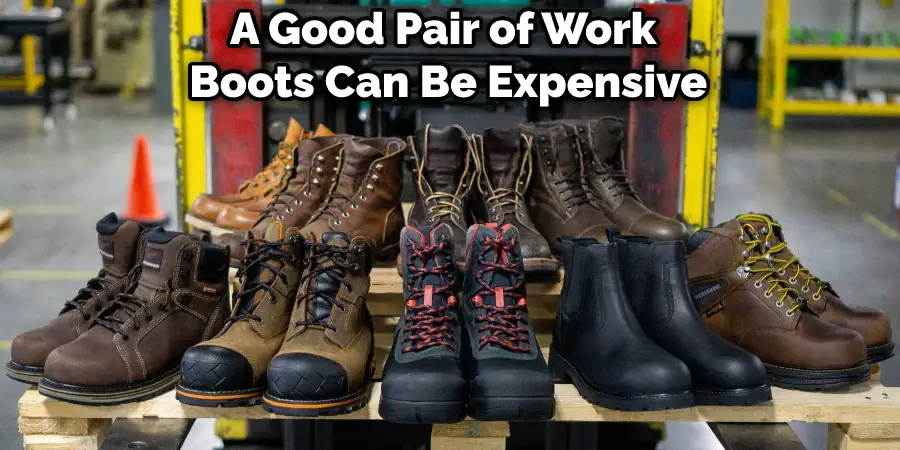
Is It Bad to Wear Boots in the Summer?
Wearing boots in the summer can make your feet sweat more than usual. If you must wear boots, be sure to choose a pair that is made from breathable materials. It would help if you also looked for boots with vents or holes to allow air to circulate. If your boots are made from leather, you can use a foot powder to help absorb sweat and keep your feet dry. Boots that are too tight will also cause your feet to sweat more, so make sure that you choose a pair that fits well.
How Much Should You Spend on Work Boots?
If you’re looking for the best possible work boots, then you should spend as much as you can afford. The quality of the materials and construction will be much higher, and you’ll be able to get a boot that lasts for years instead of months.
However, we understand that not everyone has the same budget. If you’re working with a limited budget, then you should still try to get the best possible boot that you can afford. The quality won’t be as high, but it will still be a big step from the cheapest option. Normally, we recommend that people spend at least $100 on their work boots.
Does Vinegar Help Sweaty Feet?
Vinegar can help to kill bacteria and fungus, making it a great option for sweaty feet. However, it can also make your feet smell bad. If you use vinegar, be sure to dilute it with water. You can also add a few drops of essential oil to help mask the vinegar smell. Next, soak your feet in a vinegar and water solution for 15-20 minutes. You can do this once or twice a week. To make a vinegar and water solution, mix 1 part vinegar with two parts water.
Frequently Asked Questions
Why Do My Boots Make My Feet Sweat?
Boots are designed to keep your feet warm and dry. When you put them on, the boots heat up and expand. This causes the boots to push your feet upward and cause perspiration. By taking them off when you’re done, the boots contract and pull your feet downward, stopping the sweat from flowing.
What Can I Put in My Shoes to Keep My Feet From Sweating?
If you’re experiencing excessive sweating in your feet, there are a variety of things that you can put inside your shoes to help reduce the amount of sweat that is produced. Some popular options include cornstarch, baking soda, and Menthol crystals. These ingredients absorb moisture from the air and keep it from being absorbed by the skin. This helps to prevent foot drenching and blisters caused by excessive sweating.
If these measures aren’t working for you or if you have other concerns about your footwear, talk to a podiatrist about what might be best for reducing foot perspiration. They will be able to give you specific recommendations based on your individual situation.
Does Baking Soda Keep Feet Dry?
Baking Soda is often recommended for its ability to keep feet dry, and for good reason. This compound is a natural irritant that breaks down the surface tension of water molecules, making it less effective at sticking to your skin or clothes. As a result, baking soda is an excellent choice for helping you stay comfortable in those humid conditions. You can use it as part of your regular foot care routine or sprinkle some into your shoes before heading out on wet days.
Can You Put Deodorant on Your Feet?
You might be thinking that putting deodorant on your feet would be a horrible idea, but the truth is that there are many ways to apply it. You can put it on before you go out in order to mask any body odor, or you can use it as an aftershave if you have dry skin. Just make sure not to get it in your eyes or mouth!
Conclusion
So, now you know how to keep feet from sweating in work boots. It’s simple- just follow the tips we’ve outlined, and you’ll be good to go. And if all else fails, those handy little foot powders can always help absorb moisture and prevent sweat build-up. Keep your feet happy and healthy by following these easy steps so that you can focus on the job at hand. If you have any questions or suggestions, please let us know in the comments below! Thanks for reading.

